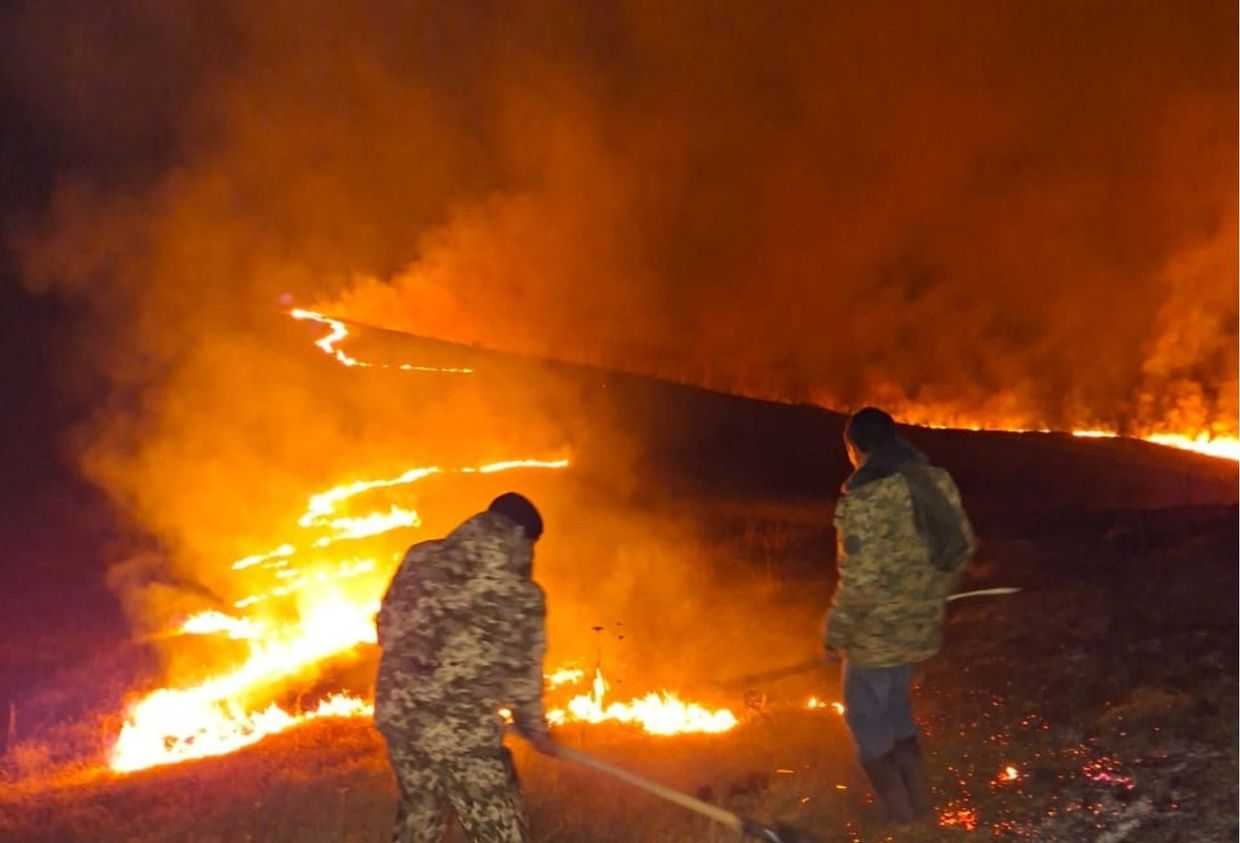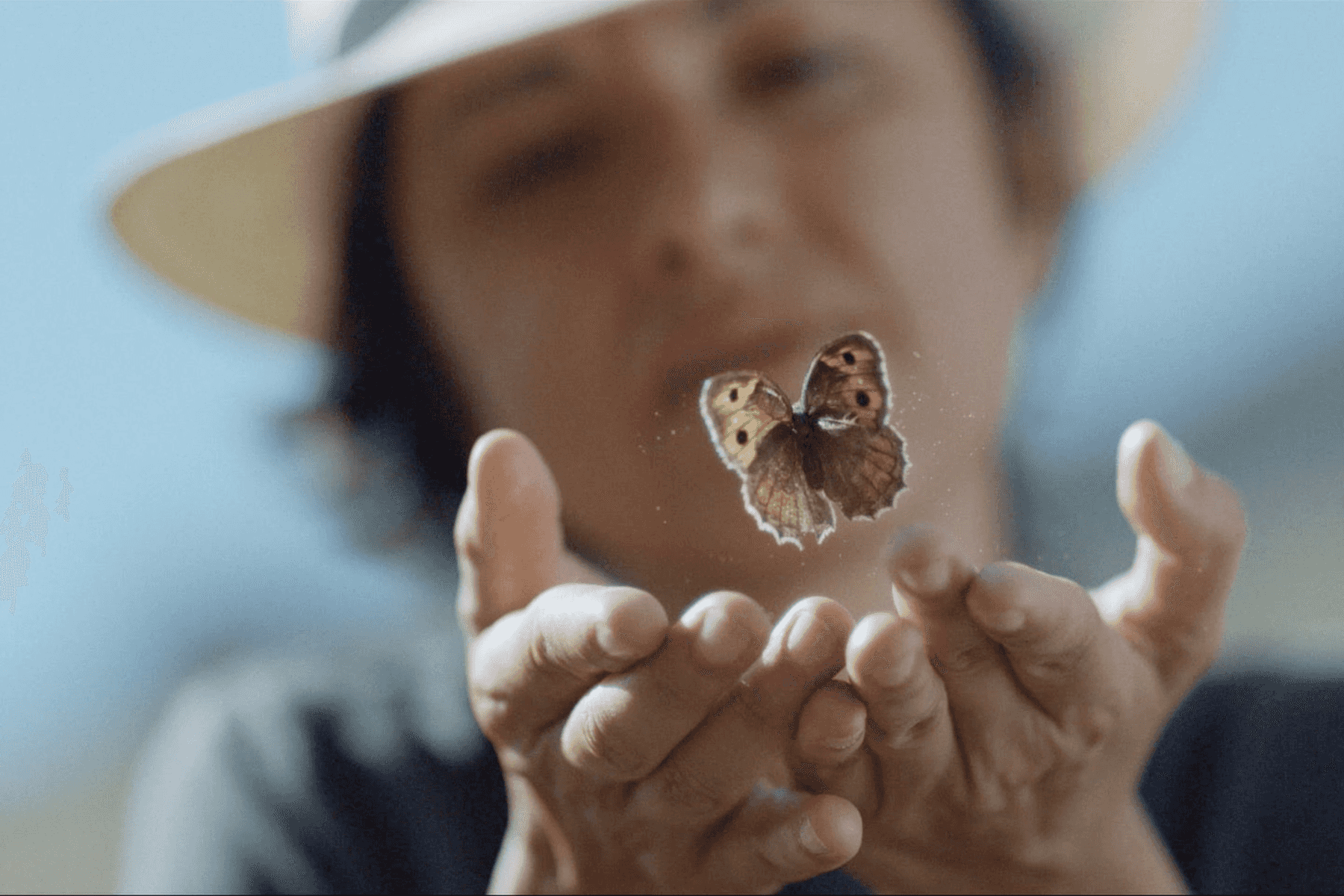
Rustavi’s reputation is anything but green, with the Soviet-built Georgian city known as a heavily polluted industrial hub. But an environmental regeneration project is hoping to change that, by bringing nature, and even otters, back to the city centre.
‘Every year I thought of leaving Rustavi, especially during the winter’, says Data Tsintsadze, 31. Born and raised in the industrial city 20 kilometres southeast of Georgia’s capital, staying there any longer seemed a bleak and uninspiring prospect.
‘I would stand in front of the mirror, and say: “fuck it, this is the last time” ’, he recalls, determined that he would not find himself in the same position again.
In 2022, his resolution finally turned out to be correct, but not in the way that he had imagined.
A project he had launched with friends to rewild the riverside plain in the centre of the city was beginning to take shape, providing the prospect for the first time that remaining in Rustavi could prove not just viable, but exciting.
‘I saw the opportunity’, he says, ‘and I said I will give it one more try’.

‘Now I realise that was the final decision point for me: I could quit, or I could go all the way. I decided not to quit.’
Since then, the Napirze project (Georgian for ‘on the riverbank’) has continued to gain momentum. Permissions have been secured from the local authorities, volunteers have begun clearing paths, and a long-term plan has been put in place to rewild the site. And as the spring of 2024 approaches, the Napirze team is now preparing to begin planting the first new trees, hoping to return the Rustavi floodplain to its wilder former glory.
From Left Bank to riverbank
‘I’m always emphasising that this project is done by completely regular people’, says Data, who runs the project to restore the floodplain with childhood friend Deme Gorgadze, also 31.
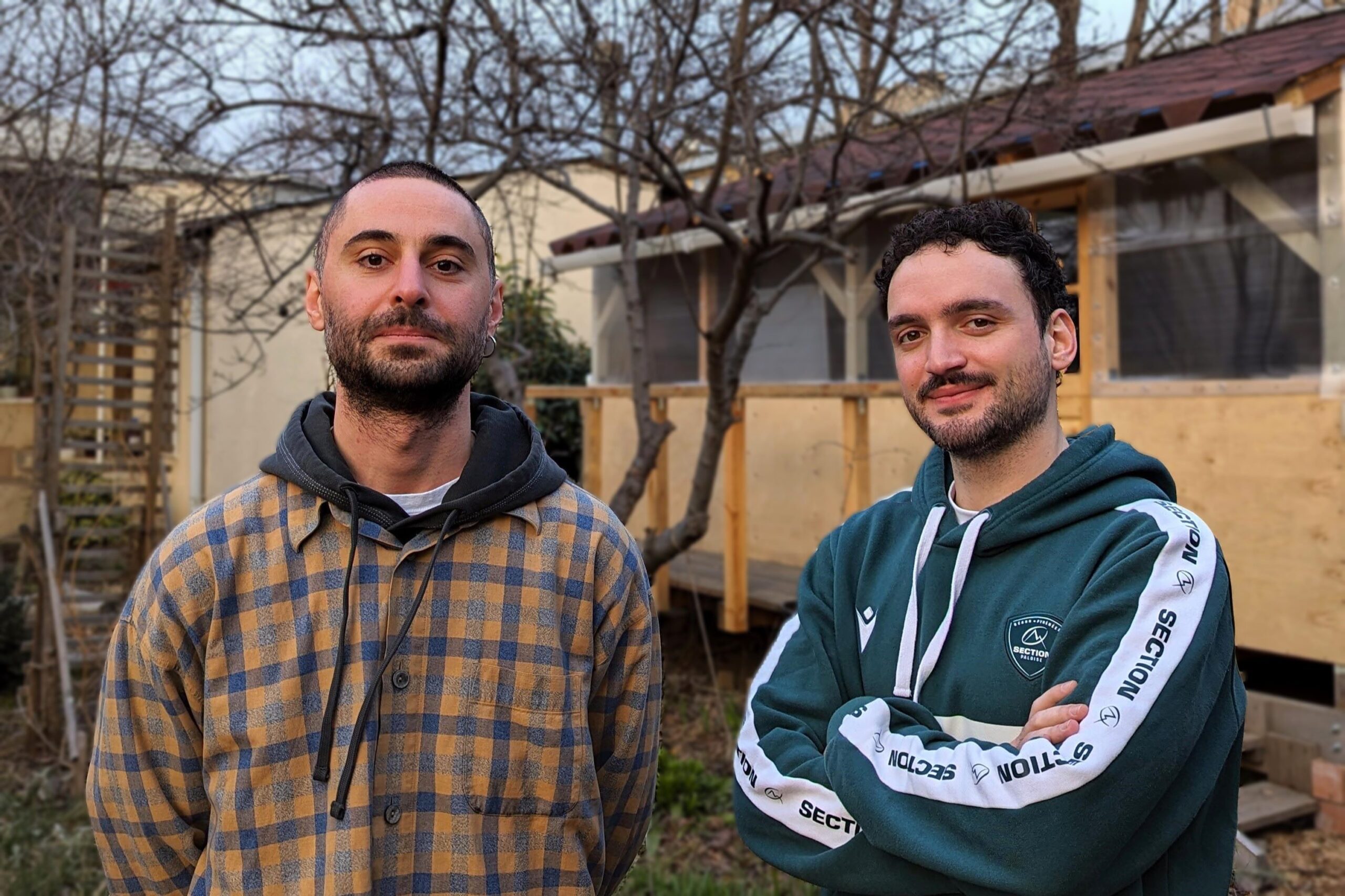
Data himself provides an example of that: after dropping out of a European Studies degree, he spent eight years working as a TV camera operator, and a year and a half working as a bartender at Tbilisi’s Left Bank club, before formally launching Napirze in the summer of 2023 after three years of preparation.
While an ancient town existed on the site until the thirteenth century, Rustavi’s modern construction began only in the 1940s, with its inhabitants drawn from around Georgia and the broader Soviet Union to work in the ironworks, steelworks, cement factories, and chemical plants of the newly-built industrial centre.
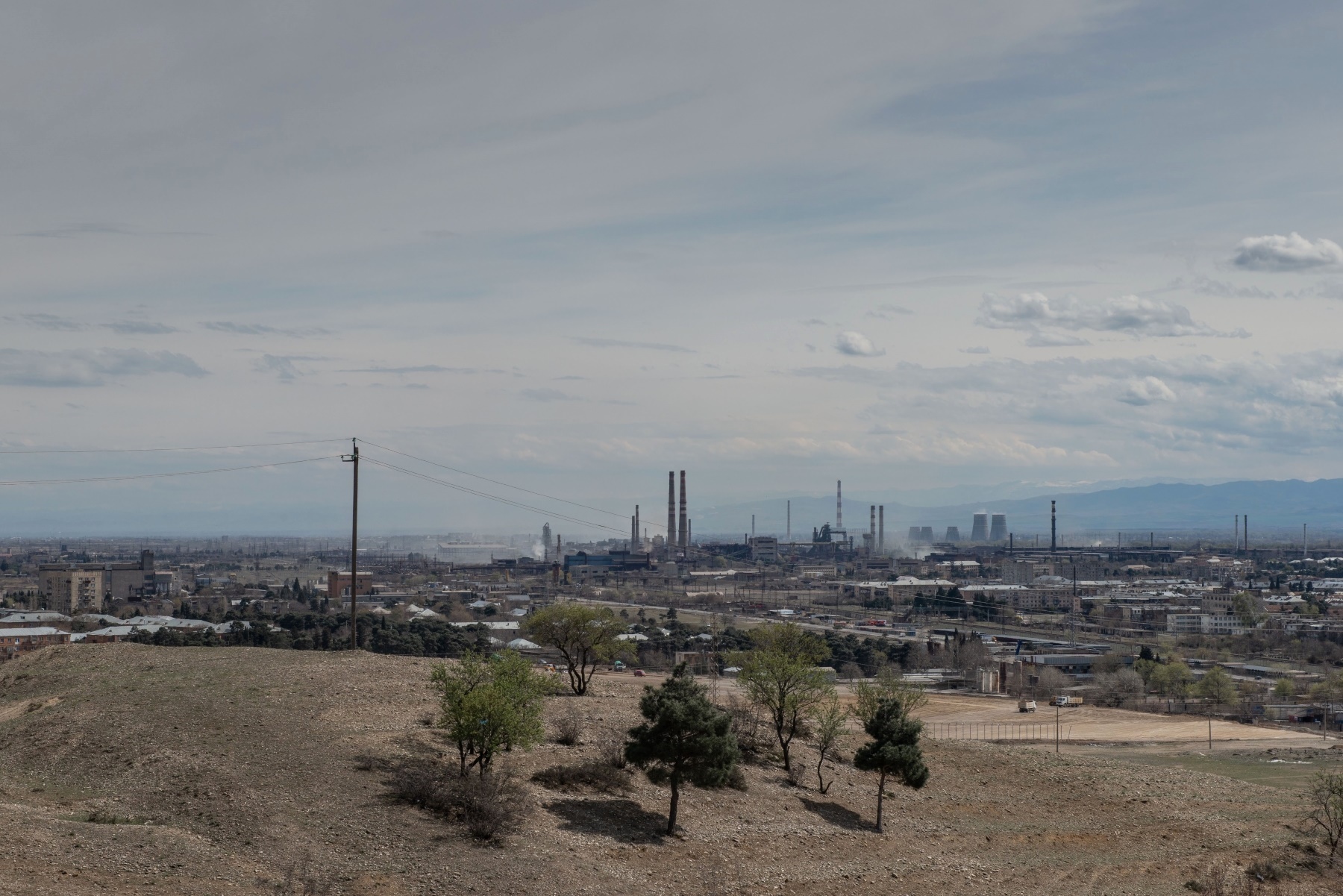
[Read more: In pictures | Rustavi: The city of factories]
Amidst the rush to construct and produce, an area in the centre of the city remained wild: 300 hectares of densely forested riverside land, around 15 metres lower than the city itself, whose humid subtropical environment provided a stark contrast to the built landscape around it.
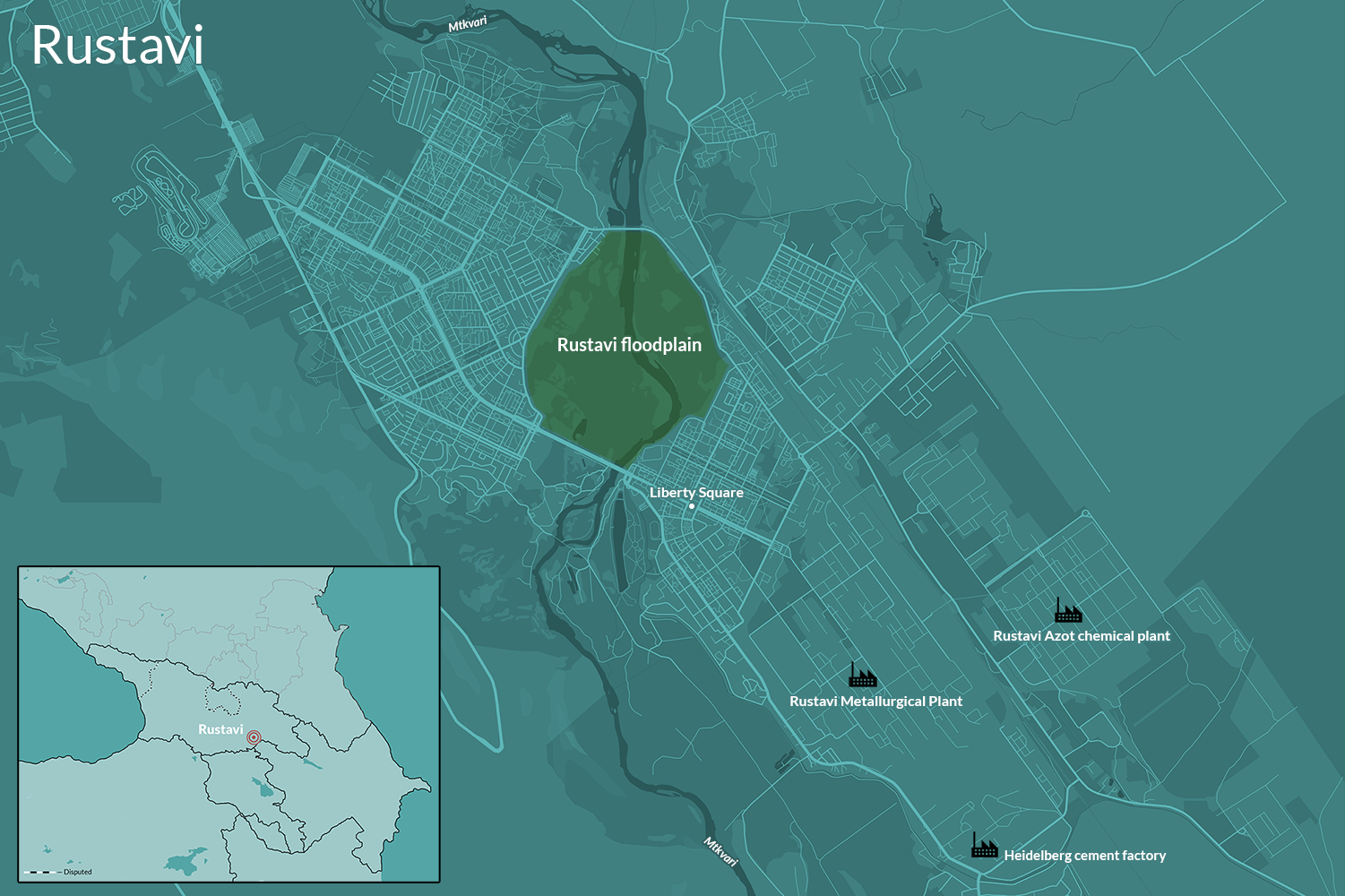
Data recalls sneaking out from school to the floodplain with friends.
‘It was our playground. And we had this story with us, that not that long ago, this place was a forest full of wildlife, but then something happened’, he says. ‘We didn’t know as kids, we had no idea what happened, but we knew that something happened and it was destroyed’.
On growing older, more details emerged. The forest had been destroyed in the 1990s, as Georgia went through civil war, political unrest, economic turmoil, and severe energy shortages. Its wildlife was depleted by hunters and its trees were cut down for firewood.
‘If you look at [archive photos], the deforestation starts somewhere from 1996, and the forest is gone in three years’, he says.
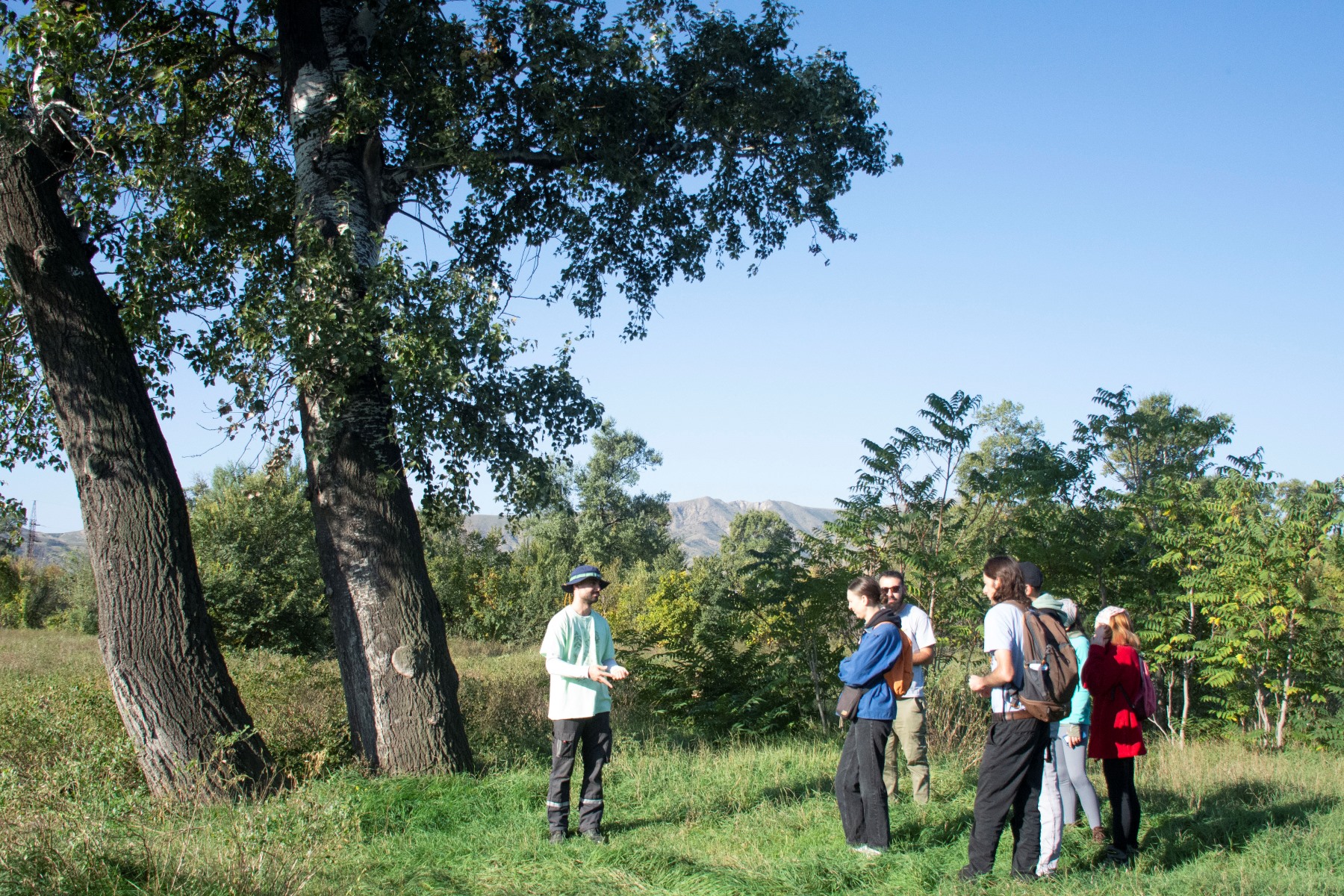
The Napirze cofounders agree that the sense of loss was keenly felt, with Data stating that many of those born in Rustavi in the 1990s grew up with two common goals — to reforest a mountain next to the city or to restore the floodplain. Since 2020, he has been working to make the second a reality.
The power of shishvelikheli
‘It started with destroying [Data’s] garage’, says Deme.
In their teenage years, Data, Deme, and their group of friends would regularly gather in the yard of Data’s family home, but they were always irked by a concrete garage that loomed over the space.
‘We didn’t like it’, says Deme, ‘but we didn’t have the capacity to think that we could actually change it, because we didn’t see ourselves as people who could actually change the environment. One day, we realised that we’re the ones who need to do something.’
‘We changed our perception. We said: “okay, we don’t know how we’re going to destroy it, we don’t know what we’re going to put there, our intention is just to get rid of this garage, so let’s get rid of this garage first, and then we will see”.’
After dismantling the garage, Data, Deme, and their friends returned to their long-running discussions of reforesting the floodplain, and decided to take action. They designed and built a greenhouse in place of the concrete garage, to nurture seeds and seedlings collected in local parks which they would later plant.
They went on to build a presentation space alongside it, and in the summer of 2022, launched Data’s Garden: a community hub that serves as an educational centre and recycling point. The space now hosts visitors, discussions, film screenings, live music, and semi-regularly, as per its roots, Data’s friend group.
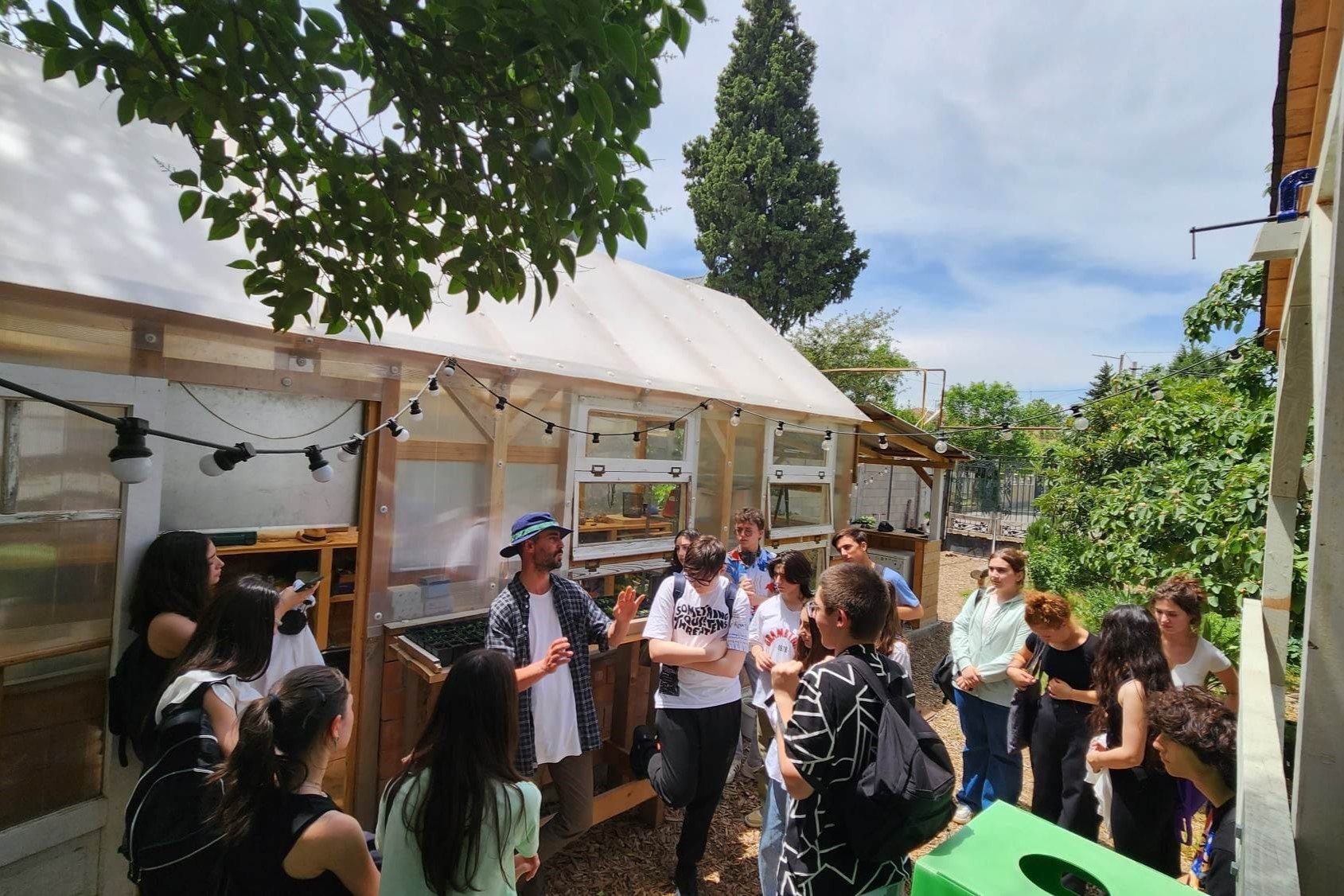
Work on the floodplain began in earnest the following spring. After getting permission from the local government, Data set up a team of six core volunteers, launched a working group with the local government, reached out to schools and youth groups, and got to work on the site.
Data advocates for the power of ‘shishvelikheli’ — Georgian for ‘bare hands’ — and put this into practice in the project’s first season. Scout groups, schoolchildren, friends, acquaintances, and people who had seen the project online joined forces with the Napirze team and volunteers from the Transcaucasian Trail to clear the site’s first official trails.
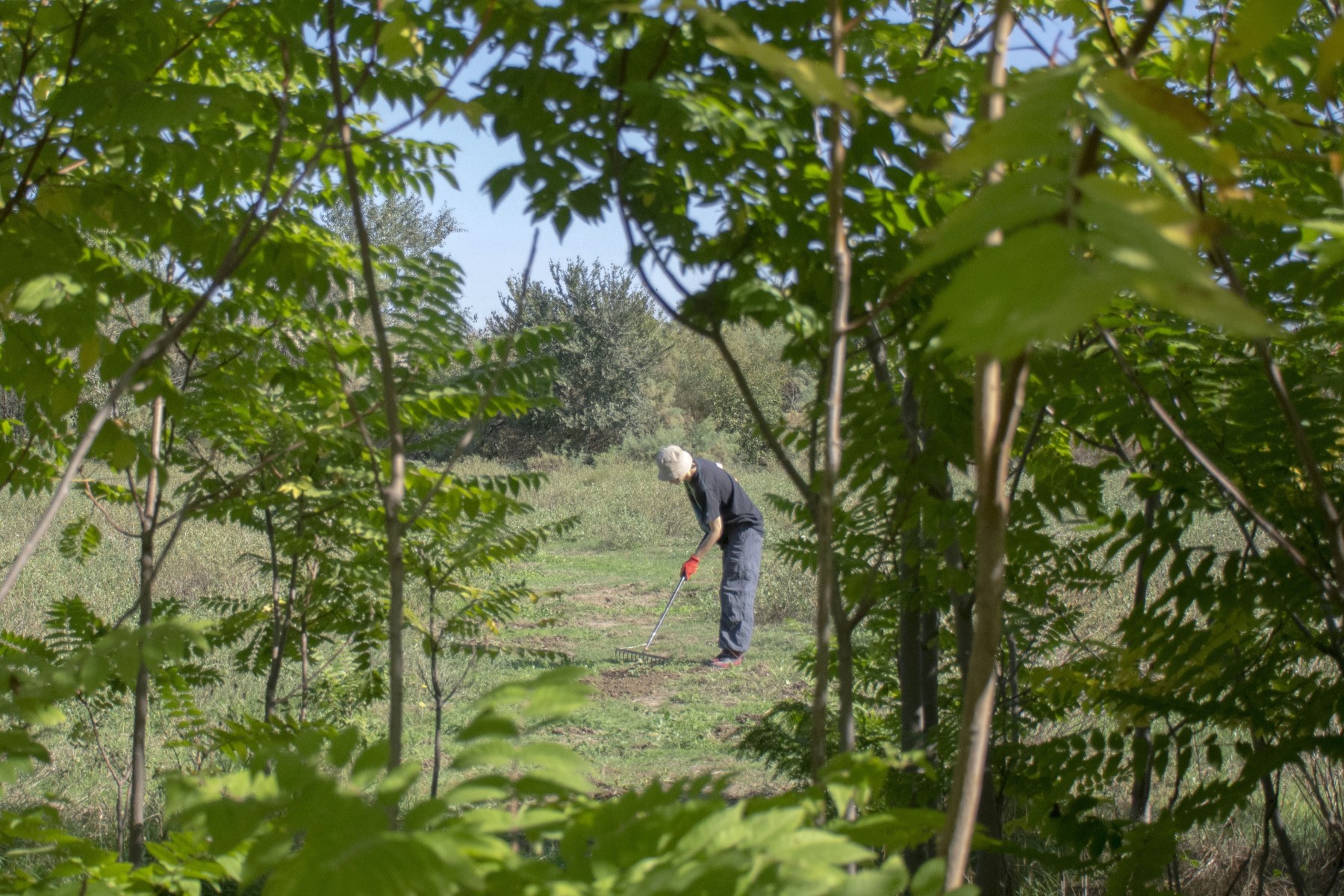
The project’s planning has been similarly executed, with the team self-educating while reaching out to experts.
‘I think Napirze has really been empowering for everyone involved’, says Maggie Brand, the team’s resident landscape architect, who is completing the final year of her master’s degree at Auburn University. ‘Every part of the project has been developed by the community’s willingness to pool resources and volunteer their time to make a change in their environment.’
She adds that one of the project’s core principles is a ‘what if/why not mentality’ — something that is evident in the project’s larger aims. While work on the site is set to continue in the years ahead, the team’s vision extends beyond the floodplain: they aim to both reshape Rustavi’s culture and reputation, and potentially pave the way for a wave of environmental activism in the region.
Creating a blueprint
One of Napirze’s primary objectives is to bring nature to Rustavi’s city centre, with the project’s logo — an otter — representing this.
Otters were once abundant in the South Caucasus, but the region’s population saw a precipitous fall between the 1920s and 1980s, in large part due to their hunting for fur.
The Napirze team agree that the semi-aquatic mammal’s return to Rustavi would be a key indicator of success. Breeding populations exist elsewhere along the River Mtkvari, and finding otters on the floodplain would mean that the habitat and its ecosystem functions had been significantly restored.
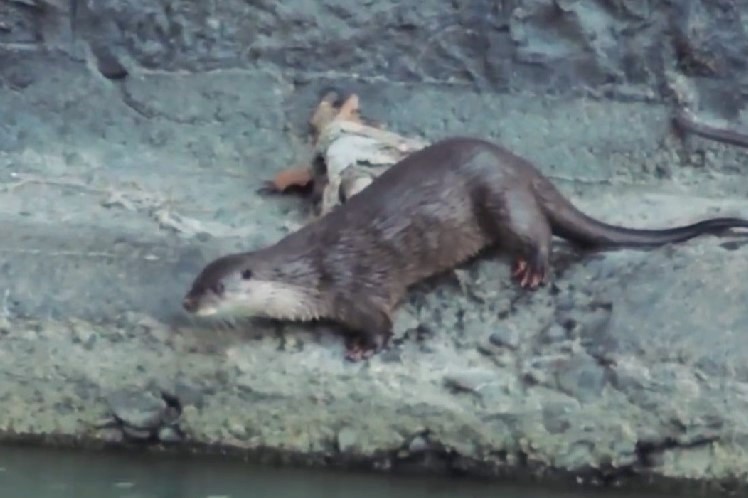
But a dense and diverse floodplain could benefit not only the flora and fauna of the region, but also the city’s human residents.
Deme explains that when Rustavi was designed, the floodplain was intended to function as ‘the lungs of the city’. With the city suffering from some of the worst air pollution in Georgia, restoring those lungs could quite literally be vital.
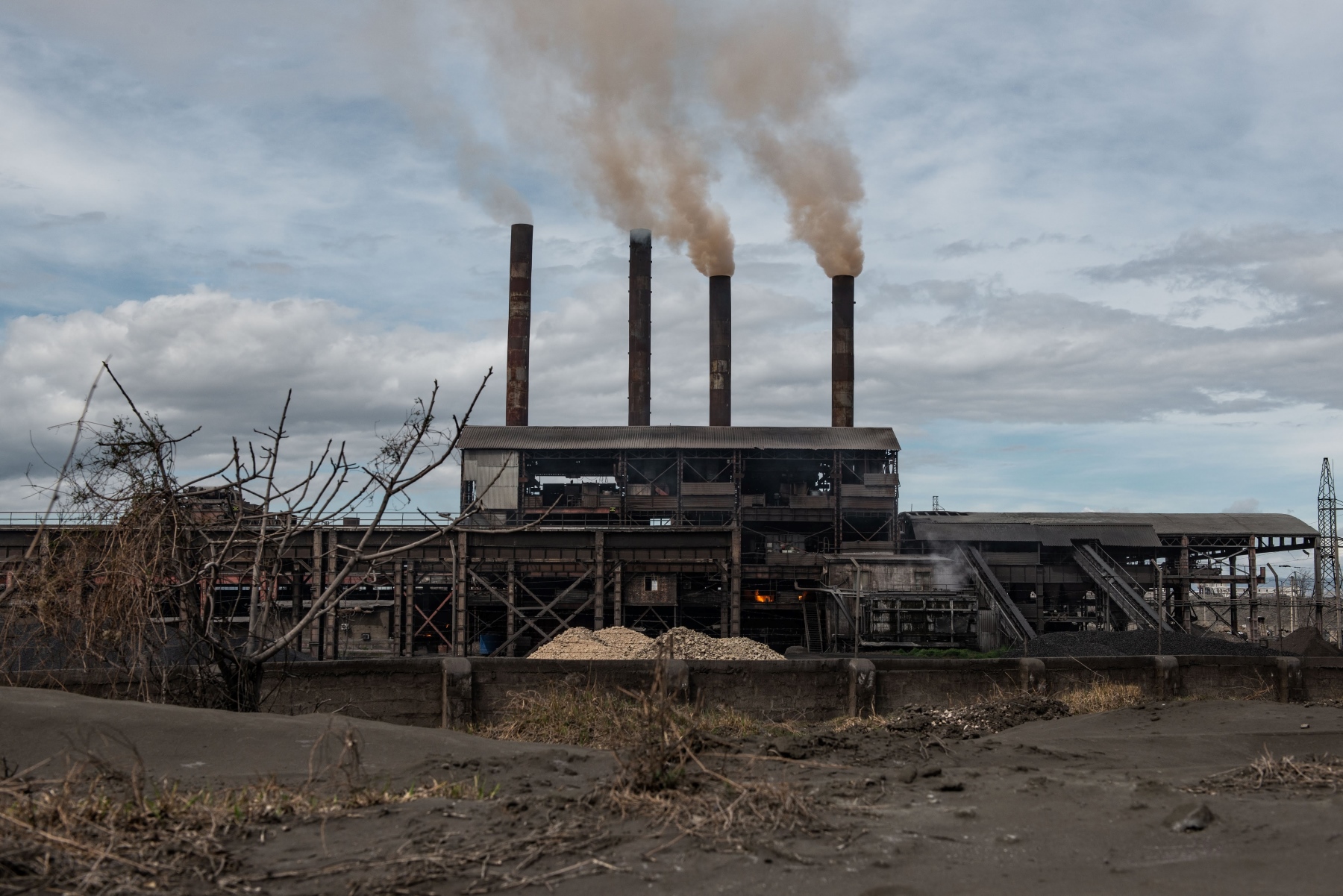
Data also describes the site as having already changed from having a reputation as an abandoned, even dangerous area, to somewhere people can walk, learn about nature, and ‘just go and clear your mind’.
But the project’s founders believe their work could have a much wider geographic impact. The River Mtkvari, also known as the Kura, runs from north-eastern Turkey through Georgia and Azerbaijan to the Caspian Sea, and is the central body of water in cities inhabited by millions of people. Restoring the floodplain and installing waste barriers on the river, as Data plans to do, could benefit not just the city’s water quality, but that of all downstream environments.
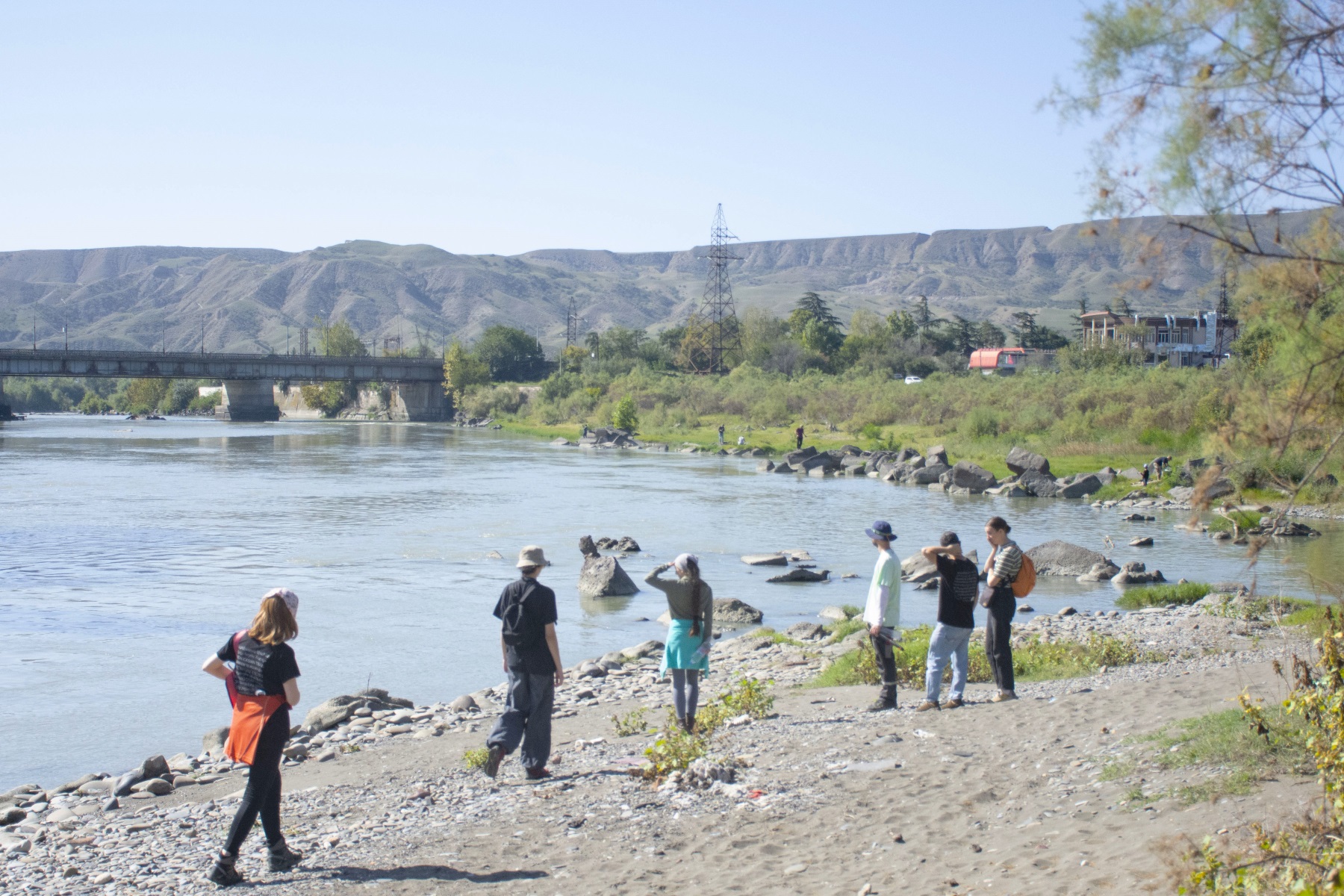
In the broader region, Data sees Napirze as both a model and a catalyst, with significant potential for collaboration with others. The team is already working with a number of local and international organisations.
‘We have similar problems all around Georgia, almost everywhere’, says Data. ‘We want to create some kind of blueprint for other future projects.’
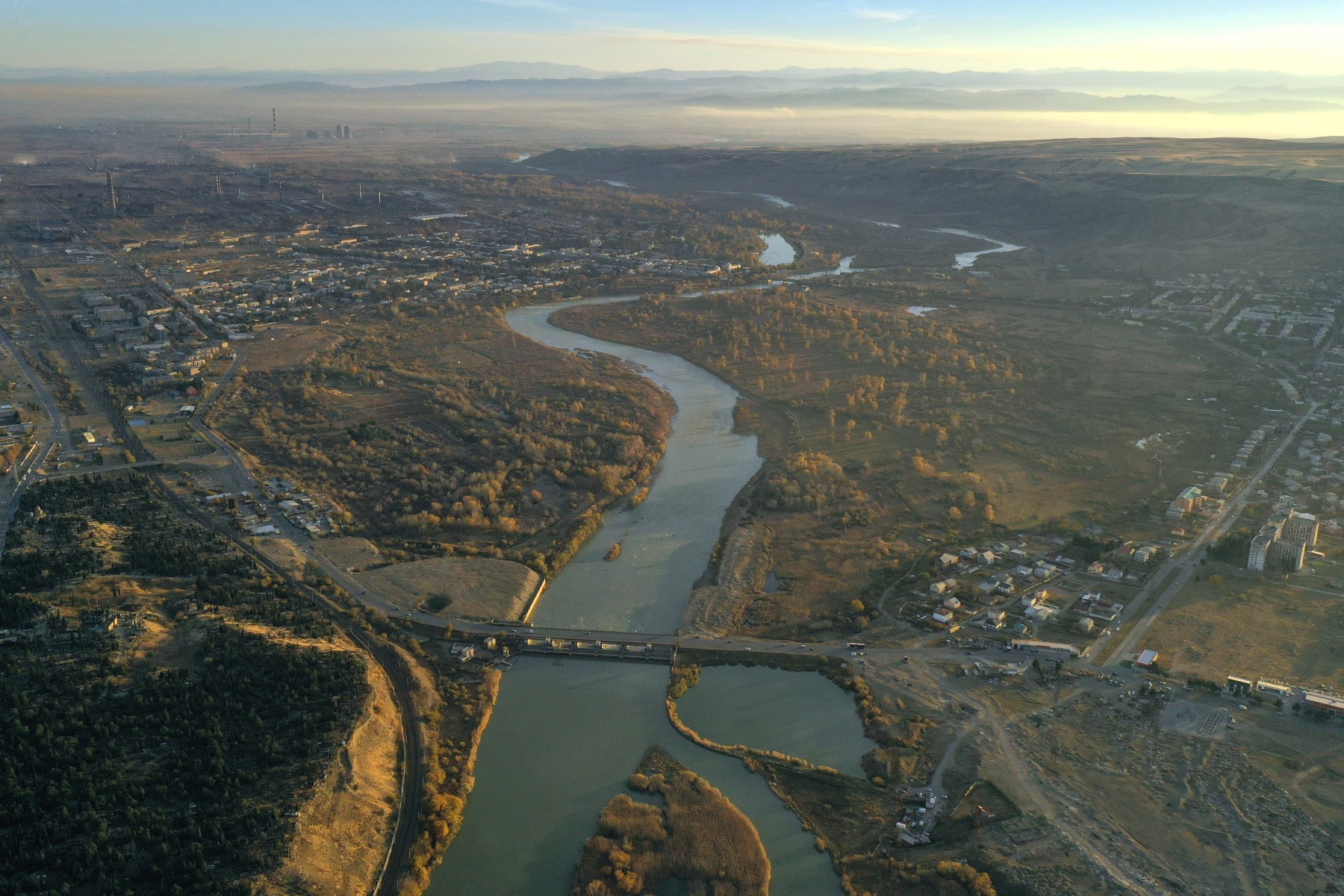
He adds that their work has also attracted the interest of academics from a variety of disciplines, with a number already having visited the site and others planning to do so.
‘And that’s the thing’, he says. ‘The project can at the same time be a hanging-out space and place for local community, and also a point of interest for the international community as well.’
This ties into one of the team’s core aims.
‘We want to create a new identity for Rustavi’, he explains, ‘which is based on a more environmentally-friendly environment, and to create new spaces in Rustavi which will bring in different communities from all over the world.’
Taking action
From the spring of 2024, Napirze will enter its next stage.
Reforestation will begin on the floodplain, with the core team collaborating with local schools and scout groups to get young people planting using the Miyawaki method, a technique that uses native trees, densely clustered, to achieve rapid reforestation.
‘We want to create generation after generation who will be aware of the environment, and most importantly they will be aware why they are doing it, why they are doing it this specific way, and they will be aware that they have done this themselves’, says Data.
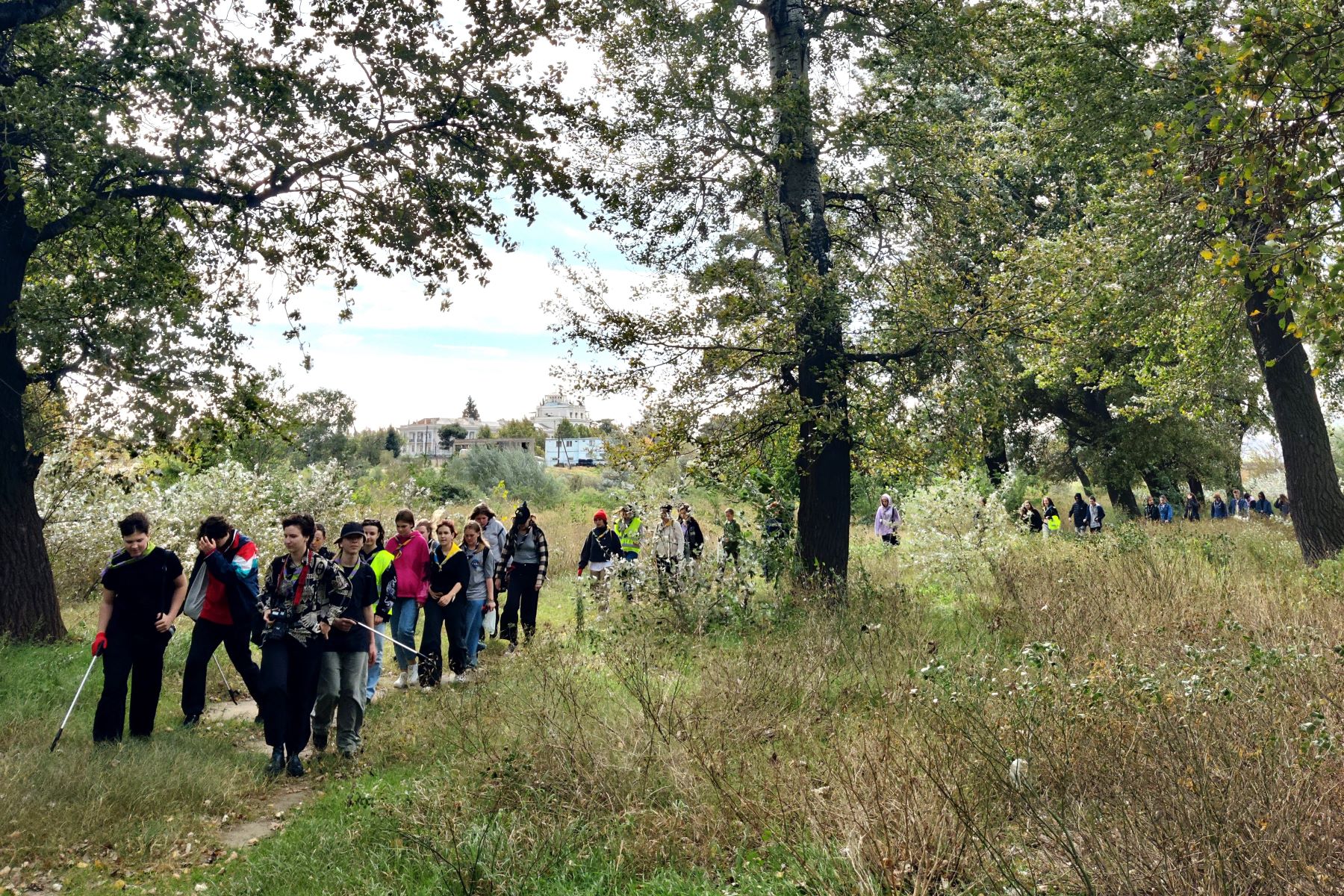
The project’s founders have also launched a fundraising drive through their website to install information boards on the floodplain, collaborating with biologists and designers to make the area’s flora and fauna accessible to visitors.
Asked about any risks to their work, Data is optimistic.
‘It’s in everyone’s interest to let the project become a reality’, he says.
And his confidence seems justified: the team’s conviction and drive appear to be infectious, with their energy quickly spreading to those around them. Researchers, officials, activists, young people, and others have responded to the team’s enthusiasm in kind, jumping on board and volunteering their time and energy.
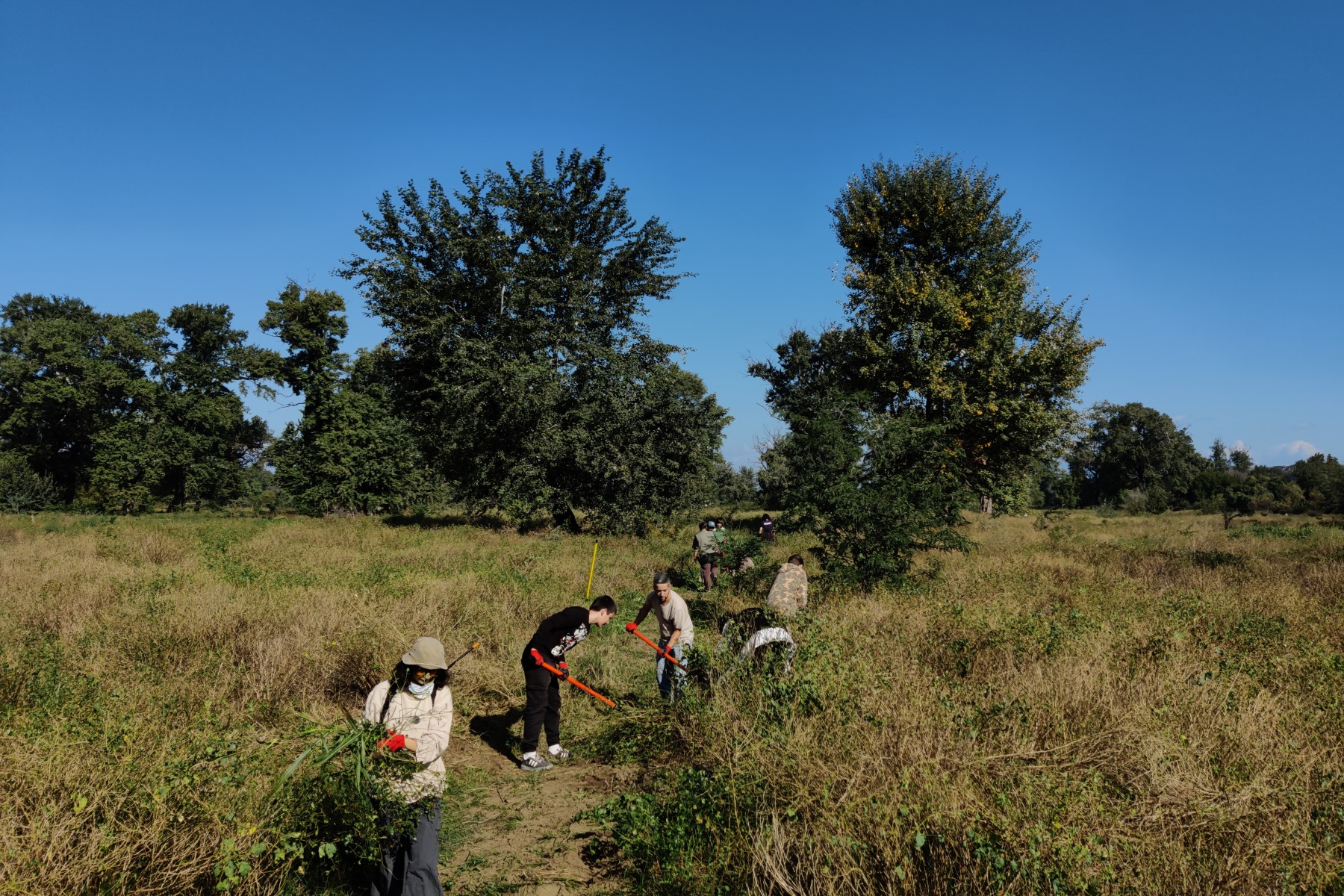
And the team have more planned to get people involved in moving towards their goal of a healthy and forested city centre.
‘It’s my passion’, says Deme. ‘It all got connected because of my friends, who are brilliant people, and they just — we just did it. Like, he quit his job, I quit my job, and we don’t know what we’re going to do, we don’t know how exactly we’re going to survive, and then we do survive.’
For Data, too, his leap of faith is paying off.
‘Either you live with the mindset where you think [about problems] and ask — “why are they not doing anything” — or you change that, and you ask yourself why you are not doing anything’, he says. ‘It’s not just about Rustavi, or any specific environment, for me it’s about that shift.’




